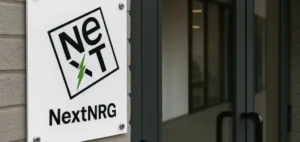The British government announced on Friday a massive investment of nearly £22 billion over the next twenty-five years dedicated to developing carbon capture and storage projects (CCUS). This initiative aims to tackle the environmental challenges related to CO₂ emissions while supporting economic growth.
These projects are designed to revitalize industrial centers, said Prime Minister Keir Starmer. Since taking office in July after the Labour Party’s victory in the general elections, Starmer has committed to promoting innovative solutions for the UK’s energy transition.
Deployment of Carbon Capture Projects
Three carbon capture hubs will be established in the former industrial areas of northwest and northeast England, particularly in the Liverpool region. These facilities will aim to capture emissions from power plants, cement factories, and blast furnaces before they are released into the atmosphere.
Carbon capture and storage (CCUS) involves capturing industrial emissions, followed by injecting them into deep geological reservoirs or reusing them in various industrial processes. This technology is considered essential for achieving the UK’s climate goals.
Economic and Environmental Impact
According to the government, these projects are expected to create approximately 4,000 direct jobs and up to 50,000 long-term jobs. Additionally, they are likely to generate £8 billion in private investments, thereby strengthening the national economy while supporting environmental initiatives.
The UK is committed to reducing its carbon emissions by 8.5 million tonnes per year through these projects. Carbon storage is expected to commence from 2028, marking a crucial step in the fight against climate change.
Reactions from Stakeholders
The Climate Change Committee (CCC), the government’s advisory body on climate strategies, welcomed this initiative. James Richardson, director of the CCC, stated: “It’s fantastic to see the funding for these major projects materialize. We cannot achieve the country’s climate goals without CCUS. This commitment is therefore very reassuring.”
However, the NGO Greenpeace has expressed reservations regarding this announcement. Doug Parr, a UK representative of the organization, criticized the amount invested, arguing that it could be better used to promote green industries such as offshore wind or to fund a national housing insulation program.
Future Perspectives
Despite the criticisms, the British government maintains its position on the importance of CCUS in its overall energy strategy. Integrating this technology is seen as a key component to ensuring a successful energy transition while supporting industrial growth.
The planned investments should also position the UK as a leader in the field of carbon capture, paving the way for future innovations and international partnerships in the fight against climate change.





















